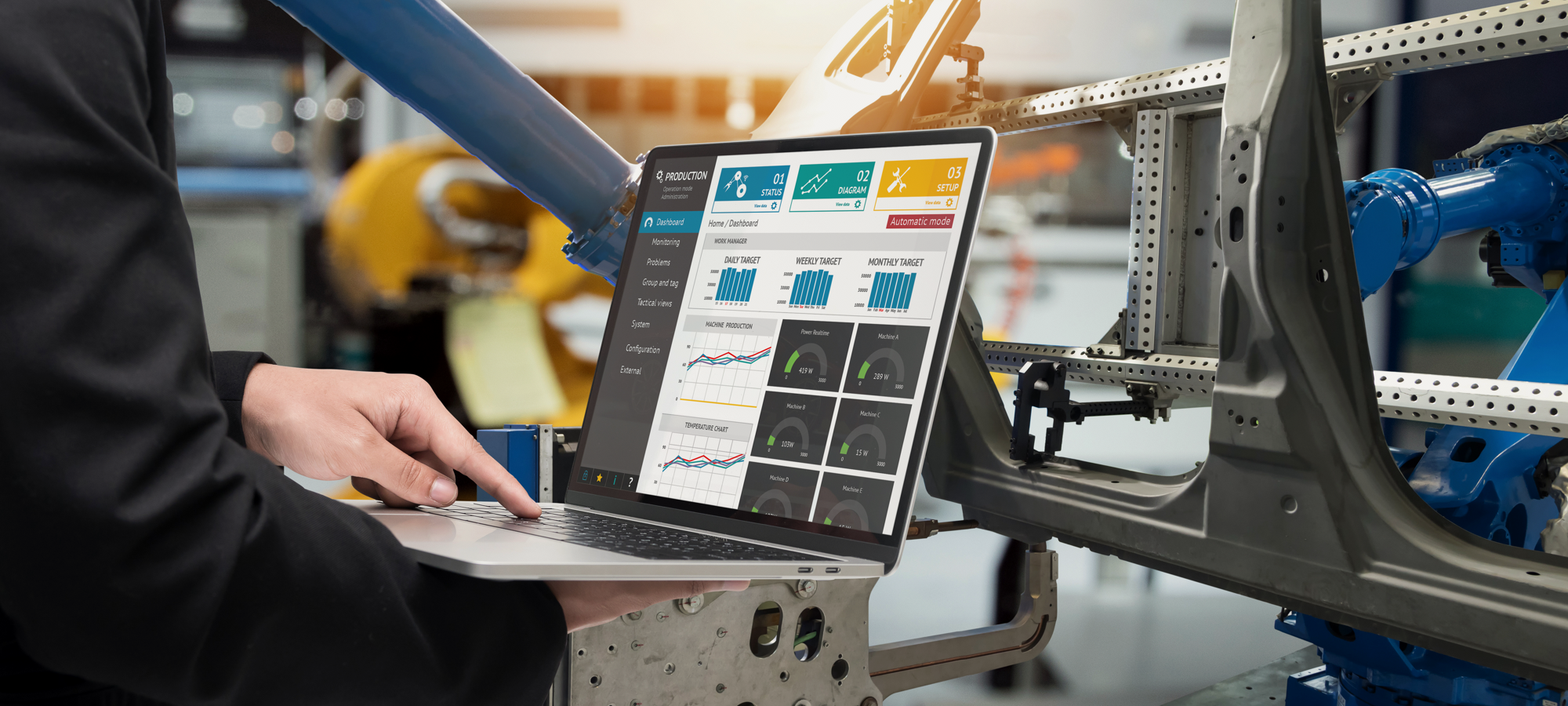Artificial intelligence: treasure or threat?
From quality control and production process optimization to customer behavior prediction, planning and information management: AI offers potentially ground-breaking benefits to businesses and activities of all types. But can people and companies keep up with the speed of AI evolution? Should we get started with AI right away – or hold back in favor of tried-and-true technologies?

AI: 5 years to full saturation
In just the last couple of years, computing power has both increased significantly and become widely available and affordable through cloud solutions. As a result, AI and machine learning are within your grasp – and plenty of companies are relying on them to create value through predictive maintenance, resource and quality control optimization and customer behavior prediction, to name a few.
Data-heavy finance, automotive and healthcare sectors were among the first adopters due to the immediate big impacts of AI, but food, chemicals and manufacturing are following suit. We can count on every single sector being impacted in the next one or two years.
While powerful, AI has limits
While AI tech today is extremely proficient in the recognition of faces, objects, sounds and pattern, classification and prediction – it is incapable of empathy. It cannot display human traits like creativity, or gain real insights into complex problems. This is unlikely to change any time soon – thus highlighting the continuing importance of the human factor.
Despite this fact, AI is incredibly versatile. The key challenge is the quality and availability of the data that drives AI systems and approaches, as data is used to train and test them. Insufficient, irrelevant or inaccurate historical data can lead to project failure.
Man versus machine?
AI is destined to make our lives and careers a lot easier. It will help us make faster, more consistent decisions that are empowered by rich insights. It will also play a major role in tackling key modern challenges, like energy management, disease treatment and climate change.
In the first phase of development, AI systems will mainly interface and collaborate with humans, interact more fluently with machines, and augment our own capabilities. As trust in these solutions grows, AI systems will interact more and more with ERP systems and machines – making the human factor less important in many contexts. However, this also leads to major technical challenges centered around maintaining transparency and control of the system.
Starting with AI: keep these is mind
AI is bound to bring us huge value and should be embraced. But as is the case with all new technologies, there are challenges and threats that we must stay vigilant about.
For example, if used improperly or without good oversight, AI comes with ethical and privacy considerations and may lead to bias. From a technical perspective, we must ensure that AI is not in control, or operating within a ‘black box’ context that lacks transparency. It’s important to avoid allowing algorithms to communicate among each other without exerting control over the outcome.
Don’t fear or deny AI. Don’t be reluctant to jump in. Start thinking today about the differentiating value this technology can bring to your business.
Identify high-impact opportunities
The bottom line: AI is here to stay – it’s time to think about how you can harness it to bring insights, efficiency, simplicity and agility to your business. But the trick to success isn’t to implement AI or machine-learning approaches across the board. It’s to select key opportunities where AI could add significant value to processes or approaches and plan a targeted roadmap towards one specific application at a time. This gives your organization time to adapt to changing processes, embrace new approaches and invest in them.
New to AI technologies? We’ve helped many companies with their roadmaps to AI success. We can assist you in developing a feasible plan of approach that maximizes impact, visibility and added value on a sustainable scale. Get in touch with us today.



